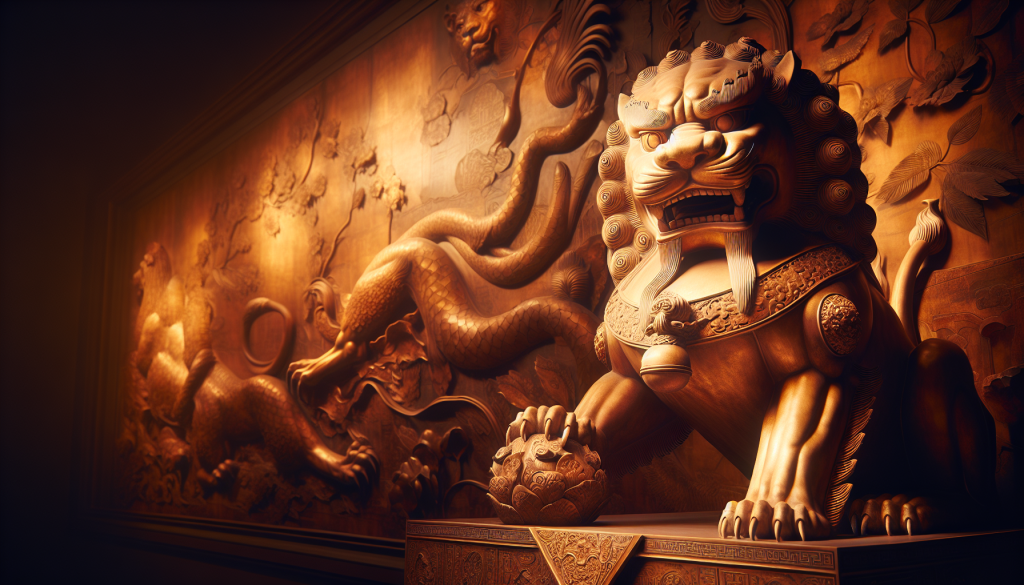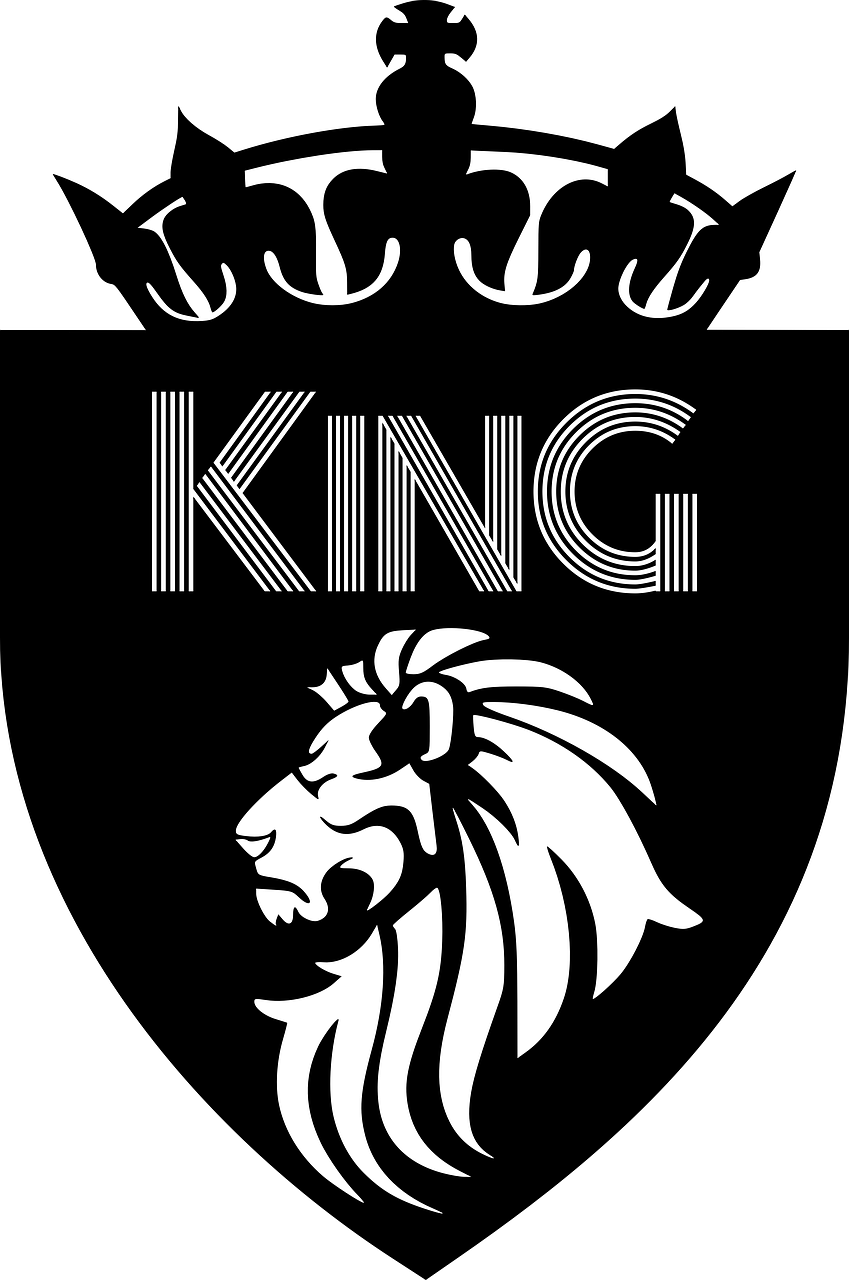Lions have long fascinated us with their majestic presence and powerful symbolism. From ancient Egypt to modern Africa, the lion has been a revered figure in various cultures around the world. In this article, we will explore the rich and diverse meanings assigned to lions in different societies, shedding light on the myths, beliefs, and cultural significance associated with these magnificent creatures. So, join us as we embark on an enlightening journey into the intriguing world of lion symbolism in various cultures.

Lion Symbolism in African Cultures
The Lion as a Symbol of Power and Royalty in Ancient Egypt
In ancient Egypt, lions held a special place in the culture and mythology. They were seen as symbols of power, royalty, and strength. Egyptian pharaohs often associated themselves with lions, considering themselves the “Lion of the Horizon” or the “Lion of God.” The lion was also closely connected to the sun god, Ra, and was believed to guard the gates of the afterlife. Their images adorned temples, tombs, and various artifacts, showcasing their significance in ancient Egyptian society.
The Lion as a Symbol of Strength and Courage in Maasai Culture
For the Maasai people of East Africa, lions have long been revered as symbols of strength and courage. Maasai warriors associate themselves with lions, considering them their spirit animals. The tribe’s traditional initiation ceremony, known as the “Eunoto,” involves young warriors demonstrating bravery by facing a lion. The Maasai believe that by emulating the strength and courage of lions, they can become better warriors and protectors of their community.
The Lion as a Symbol of Justice and Authority in South African Mythology
In South African mythology, lions are often associated with justice and authority. The Zulu people, for instance, believe that the lion represents leadership and wisdom. According to their folklore, the first Zulu king, Shaka, was blessed by a lioness, which bestowed upon him the attributes of a great leader. Lions are also seen as guardians of the land, ensuring justice and order in the natural world. In South African culture, lion symbolism is deeply intertwined with notions of power, authority, and the balance between humans and nature.
Lion Symbolism in Middle Eastern Cultures
The Lion as a Symbol of Leadership and Power in Ancient Mesopotamia
In ancient Mesopotamia, lions were seen as symbols of leadership and power. They were often depicted alongside kings or as protective deities. The lion’s strength, fearlessness, and tenacity were qualities that rulers sought to embody. The famous Ishtar Gate of Babylon even featured rows of lion sculptures, symbolizing the city’s majestic rule. Lions were also associated with the god Marduk, the supreme deity in Mesopotamian mythology, further highlighting their significance in the culture.
The Lion as a Symbol of Protection and Guardianship in Islamic Art and Architecture
In Islamic art and architecture, the lion is frequently portrayed as a symbol of protection and guardianship. Lions can be found on the entrances of mosques, palaces, and other Islamic structures. These lion motifs represent strength, bravery, and the ability to ward off evil. They are believed to protect the sacred spaces and the people within them. Lion symbolism in Islamic culture is an embodiment of the guardian role they fulfill, ensuring the safety and sanctity of the places they are depicted in.
Lion Symbolism in Asian Cultures
The Lion as a Symbol of Valor and Defense in Chinese Culture
In Chinese culture, the lion is seen as a symbol of valor and defense. The Chinese Lion Dance, performed during celebratory events such as the Lunar New Year, showcases the lion’s attributes of bravery and strength. It is believed that the lion dance can ward off evil spirits and bring good luck. Statues of lions are also commonly placed as guardians at the entrances of buildings, symbolizing protection and warding off negative energies. The majestic and powerful image of the lion is deeply ingrained in Chinese cultural symbolism.
The Lion as a Symbol of Wealth and Prosperity in Hinduism
In Hinduism, the lion holds a significant place as a symbol of wealth and prosperity. The goddess Durga is often depicted with a lion as her mount, representing her power and ability to protect her devotees. Lions are also associated with the god Narasimha, an incarnation of Lord Vishnu, who symbolizes strength and fearlessness. The lion’s representation in Hinduism echoes themes of abundance, victory over obstacles, and the rewards of righteous actions.
The Lion as a Symbol of Wisdom and Nobility in Buddhism
In Buddhism, the lion is considered a symbol of wisdom and nobility. It is often depicted alongside the Buddha, representing his royal lineage and spiritual strength. Lions are associated with the bodhisattva Manjushri, the embodiment of wisdom, who is sometimes depicted riding a lion. The lion’s regal presence and dignified demeanor convey the qualities of inner strength, noble character, and enlightened wisdom.
Lion Symbolism in European Cultures
The Lion as a Symbol of Strength and Majesty in Greek Mythology
In Greek mythology, lions were seen as symbols of strength and majesty. The most famous myth involving lions is the story of Hercules and the Nemean Lion, where Hercules demonstrates his legendary strength by slaying the lion. The lion’s lion’s golden mane and fearsome roar added to its divine allure. Greek temples and palaces often featured lion sculptures as symbols of power, protecting sacred places, and acting as guardians against evil.
The Lion as a Symbol of National Identity in England
In England, lions have long been associated with national identity and royalty. The image of a lion is featured prominently on the Royal Arms and can be seen at iconic locations such as the British Museum and Trafalgar Square. The symbolic representation of lions in England dates back to the medieval period when they were incorporated into the heraldry of kings and knights. The lion represents strength, bravery, and nobility as attributes that reflect the nation’s identity and history.
The Lion as a Symbol of Royalty and Courage in France
In France, lions are regarded as symbols of royalty and courage. The iconic lion sculptures on the Column of the Grande Armée in Paris reflect the country’s history and warrior spirit. The French monarchy used the lion as a symbol of power during their reign, emphasizing their control and dominance. The lion’s representation in French culture is a testament to the ideals of strength, bravery, and grandeur that are deeply rooted in the nation’s heritage.
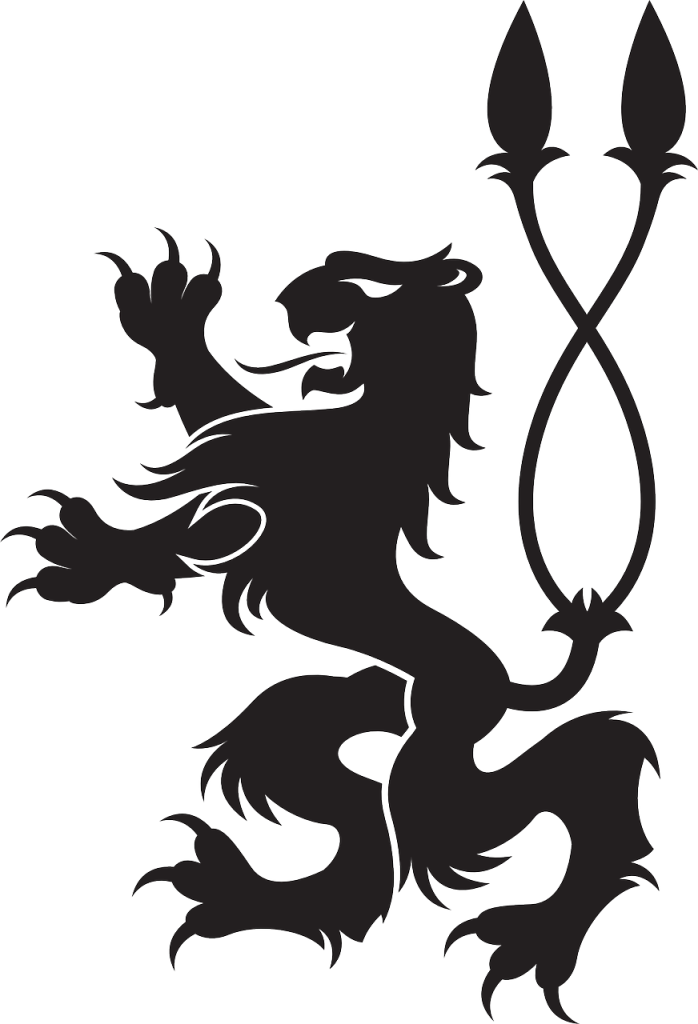
Lion Symbolism in Native American Cultures
The Lion as a Symbol of Wisdom and Guidance in Native American Folklore
In Native American folklore, the lion is often seen as a symbol of wisdom and guidance. Various tribes, such as the Lakota and Navajo, believe that lions possess spiritual knowledge and offer guidance to those who seek it. Lions are associated with traits such as intuition, foresight, and knowledge of the natural world. They are regarded as wise and respected figures in Native American culture, offering lessons that can help individuals navigate their spiritual journeys.
Lion Symbolism in Ancient Cultures
The Lion as a Symbol of the Sun and Light in Ancient Egyptian Mythology
In ancient Egyptian mythology, lions are closely associated with the sun god, Ra, and are considered symbols of the sun and light. The lion’s golden mane and radiant presence reflect the power and brilliance of the sun. It was believed that the lion guarded the gates of the afterlife and provided protection to the pharaohs and their souls on their journey to immortality. The lion’s association with the sun and light highlights its significance in ancient Egyptian belief systems.
The Lion as a Symbol of Protection and Threshold Guardian in Ancient Greek and Roman Mythology
In ancient Greek and Roman mythology, the lion was seen as a symbol of protection and acted as a threshold guardian. Statues of lions were often placed at the entrances of important buildings, such as temples and palaces, to ward off evil spirits and protect the sacred spaces within. The lion’s imposing presence signified strength and the ability to keep away malevolent forces, serving as a guardian against potential harm or intrusion.
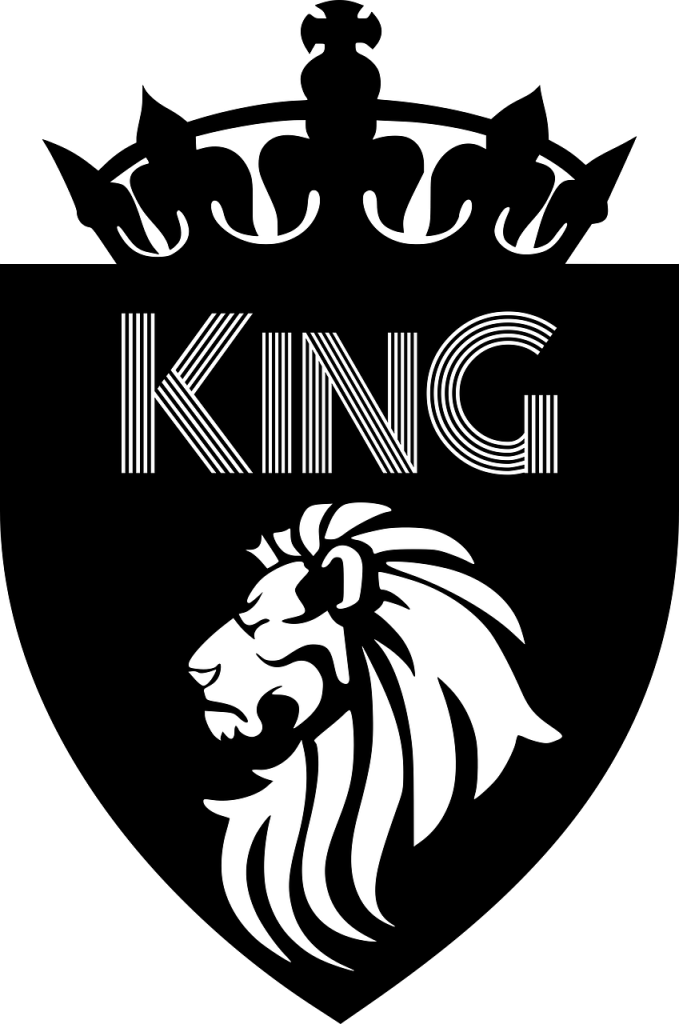
Lion Symbolism in Art and Literature
The Lion as a Symbol of Strength and Courage in Renaissance Art
During the Renaissance period, artists often used lions as symbols of strength and courage in their paintings and sculptures. The lion’s fierce appearance and powerful stance were associated with virtuous qualities admired during that time. The depiction of lions in Renaissance art conveyed ideas of bravery, determination, and resilience, invoking admiration and awe among viewers.
The Lion as a Symbol of Ferocity and Wildness in Literature
In literature, lions are frequently portrayed as symbols of ferocity and wildness. From ancient fables to modern novels, lions represent untamed nature and its primal instincts. Their presence in literature often conveys a sense of danger and unpredictability, reminding readers of the raw power and wild beauty that lions embody.
Lion Symbolism in Heraldry and Flags
The Lion as a Symbol of Power and Bravery in Heraldry
In heraldry, lions are commonly used as symbols of power and bravery. Heraldic lions appear on coats of arms, crests, and flags, representing noble families, regions, or nations. The lion’s regal and fearsome image conveys the strength and courage associated with these entities. The various poses and colors of heraldic lions also hold specific meanings, further emphasizing their symbolism in heraldry.
The Lion as a Symbol in Flags of Various Nations
The lion features prominently in the flags of several nations. For example, the lion on the flag of Sri Lanka represents strength, bravery, and national identity. Similarly, the lion on the flag of Singapore symbolizes courage and the nation’s origins as a city surrounded by dense forests. Lions are used in flags as a way to express national pride, valor, and the spirit of those countries.
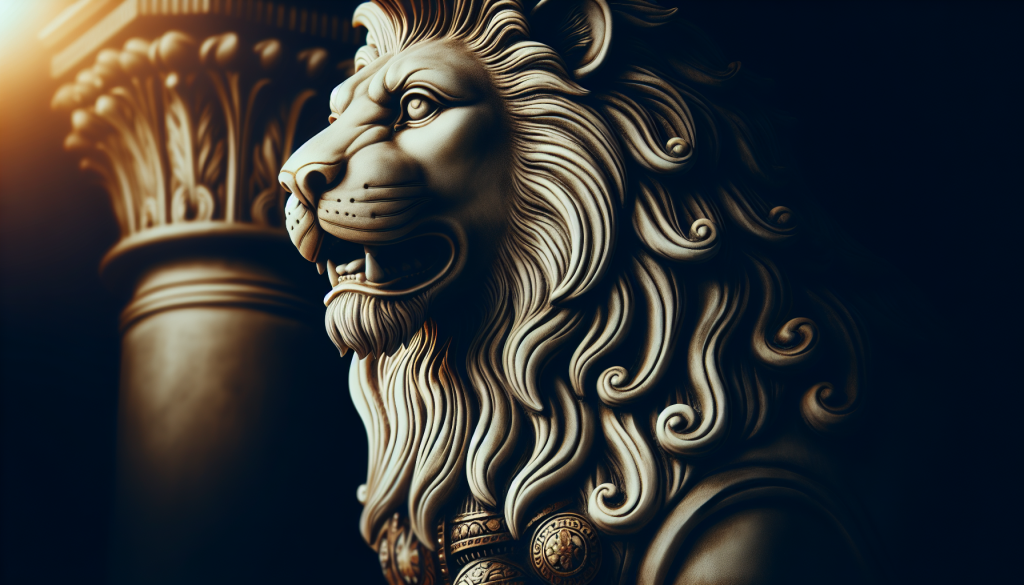
Lion Symbolism in Sports and Entertainment
The Lion as a Symbol of Team Spirit and Strength in Sports Logos
Many sports teams incorporate the image of a lion into their logos, reflecting the attributes of team spirit and strength. Lions are often linked to sports such as soccer, rugby, and American football, where their powerful and fierce nature aligns with the competitiveness and determination exhibited by athletes. The lion’s presence in sports logos fosters a sense of unity and motivates players to exhibit strength and courage on the field.
The Lion as a Symbol of Majesty and Dominance in Film and Television
In the world of film and television, lions are frequently used as symbols of majesty and dominance. Their appearance in popular culture, such as in movies like “The Lion King,” portrays them as leaders, powerful beings, and rulers of their territories. The lion’s regal image serves to captivate audiences and evoke a sense of awe and respect for their majestic presence.
Lion Symbolism in Religion and Mythology
The Lion as a Symbol of Deity and Divine Power in Various Religions
Throughout various religions, lions hold symbolic significance as representations of deity and divine power. In Christianity, the lion is associated with Jesus Christ, the Lion of Judah, symbolizing his majesty and authority. In ancient Near Eastern religions, lions were often seen as guardians of temples and sacred spaces, representing the gods’ power and protection. Lions also hold prominent roles in other belief systems such as Hinduism, where they are associated with deities like Durga and Narasimha.
The Lion as a Symbol of Guardianship and Spiritual Transformation in Mythology
In mythology, lions are often revered as symbols of guardianship and spiritual transformation. In both Egyptian and Babylonian mythologies, lions were believed to guard the gates of important realms, such as the afterlife or the divine realm. Lions were perceived as guides for individuals making spiritual journeys, offering protection and guidance along the way. Their presence in mythology emphasizes their role in serving as guardians and facilitators of transformative experiences.
In conclusion, lion symbolism is rich and diverse across cultures and throughout history. From ancient Egypt to modern sports logos, the lion represents various facets of power, strength, courage, wisdom, protection, and identity. Its majesty and regal presence continue to captivate and inspire people across the globe, serving as a universal emblem of awe-inspiring qualities. Whether seen in religion, mythology, art, or everyday life, lions hold a prominent place in our collective consciousness as symbols that resonate deeply within our cultures.
